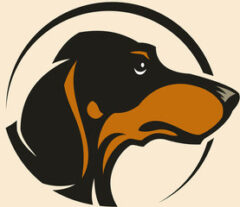How To Prevent Bowel Problems In Dachshunds

Is your Dachshund experiencing frequent bowel problems? As a responsible pet owner, it’s essential to understand how to prevent and manage these issues to ensure your furry friend’s wellbeing. In this article, we will explore effective strategies to keep your Dachshund’s digestive system healthy and prevent common bowel problems.
Common Bowel Problems in Dachshunds
Dachshunds, also known as sausage dogs, are prone to certain bowel problems that can disrupt their daily lives. Two common issues they may face are constipation and diarrhea. These problems can be caused by various factors, such as dehydration, lack of dietary fiber, dietary changes, food allergies, infections, or certain medications. It’s crucial to be aware of the signs and symptoms of these problems and take proactive measures to prevent them.
Causes of Bowel Problems in Dachshunds
Understanding the causes of bowel problems in Dachshunds is essential for prevention and management. One of the primary causes of constipation is dehydration. Dachshunds, especially those on a dry diet, may not consume enough water, leading to hard stools and difficulty in passing them. Lack of dietary fiber is another contributing factor. Dachshunds require a balanced diet that includes sufficient fiber to promote regular bowel movements.
Diarrhea, on the other hand, can be caused by dietary changes, food allergies, or infections. Introducing new food too quickly or switching to a low-quality diet can upset your Dachshund’s digestive system. Food allergies can also trigger diarrhea, so it’s important to identify and eliminate any potential allergens from their diet. Infections, such as bacterial or viral gastroenteritis, can also cause diarrhea in Dachshunds.
Signs and Symptoms of Bowel Problems in Dachshunds
Recognizing the signs and symptoms of bowel problems in your Dachshund is crucial for early detection and prompt intervention. In the case of constipation, you may notice your dog straining during bowel movements, passing small and hard stools, or having infrequent bowel movements. They may also show signs of discomfort, abdominal pain, or loss of appetite.
For diarrhea, the signs are more evident. Your Dachshund may have loose, watery stools that are more frequent than usual. They may also experience vomiting, dehydration, lethargy, and a decreased appetite. It’s important to monitor their symptoms closely and seek veterinary assistance if the condition persists or worsens.
Preventative Measures for Bowel Problems in Dachshunds
Preventing bowel problems in Dachshunds requires a multi-faceted approach that involves dietary considerations, exercise, regular veterinary check-ups, and general care. By implementing these preventative measures, you can significantly reduce the risk of bowel problems occurring in the first place.
Diet and Nutrition for a Healthy Bowel in Dachshunds
A well-balanced diet plays a crucial role in maintaining a healthy bowel in Dachshunds. Ensure that your Dachshund’s diet contains an adequate amount of dietary fiber. You can achieve this by including fiber-rich foods such as pumpkin, sweet potatoes, or green leafy vegetables in their meals. Additionally, feeding them high-quality dog food that is specifically formulated for their breed and age can provide the necessary nutrients for a healthy digestive system.
It’s also essential to ensure your Dachshund has access to clean and fresh water at all times. Proper hydration is crucial for maintaining regular bowel movements and preventing constipation. Monitor their water intake and encourage them to drink if you notice they are not consuming enough.
Exercise and Physical Activity for Bowel Health in Dachshunds
Regular exercise and physical activity are not only essential for your Dachshund’s overall health but also for maintaining a healthy bowel. Engage your Dachshund in daily exercise routines such as walks, playtime, or interactive toys. Physical activity stimulates the digestive system and promotes regular bowel movements. It also helps prevent obesity, which can contribute to bowel problems.
Regular Veterinary Check-ups and Preventative Care
Regular veterinary check-ups are crucial for maintaining your Dachshund’s overall health and detecting any potential bowel problems early on. Schedule annual wellness visits with your veterinarian to ensure your Dachshund receives necessary vaccinations, parasite prevention, and routine examinations. Regular check-ups allow your vet to monitor your Dachshund’s bowel health and provide appropriate guidance for prevention and treatment.
Tips for Maintaining Bowel Health in Dachshunds
In addition to the aforementioned measures, there are several tips you can follow to maintain bowel health in your Dachshund:
- Avoid giving them table scraps and human food that can upset their digestive system.
- Gradually introduce new food or dietary changes to prevent gastrointestinal upset.
- Minimize stress and provide a calm environment for your Dachshund, as stress can impact their bowel health.
- Keep their living area clean and free from potential toxins that can cause digestive issues.
- Be vigilant about potential food allergies and eliminate any triggers from their diet.
- Consider adding probiotics to their diet to promote a healthy gut flora.
Home Remedies for Mild Bowel Problems in Dachshunds
In some cases, mild bowel problems in Dachshunds can be managed at home with simple remedies. For constipation, you can try adding a teaspoon of pureed pumpkin or a small amount of olive oil to their food to help soften the stools. Ensure they have access to fresh water to stay hydrated.
For diarrhea, it’s important to withhold food for 12-24 hours to allow the digestive system to rest. After this fasting period, gradually reintroduce small meals of easily digestible food such as boiled chicken and rice. Probiotics can also be beneficial in restoring the balance of gut bacteria.
However, if the bowel problems persist or worsen, it’s crucial to seek veterinary advice for proper diagnosis and treatment.
Conclusion: Ensuring a Healthy Bowel for Your Dachshund
As a pet owner, it’s our responsibility to ensure the health and wellbeing of our beloved Dachshunds. By following the preventative measures discussed in this article, you can significantly reduce the risk of bowel problems in your Dachshund. Remember to provide a balanced diet, ensure proper hydration, engage in regular exercise, and schedule regular veterinary check-ups. By taking proactive steps, you can help your Dachshund maintain a healthy bowel and enjoy a happy and fulfilled life.
Tags:
